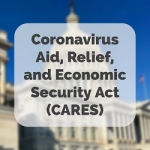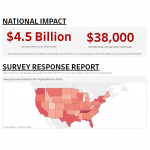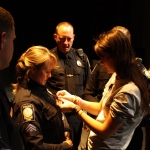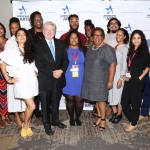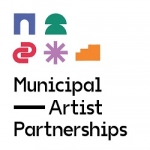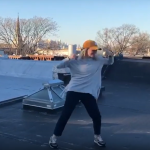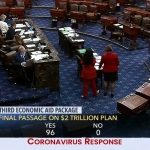News Room
Read the latest arts news
- 58
This week, COVID-related losses and challenges continue to dominate many stories about the arts and culture sector, but we're also focusing on hopeful opportunities for leadership and community engagement. Our three-part DIAL Labs series began on ArtsU; the free professional development webinars are for early- and mid-career arts leaders who want to hone skills for navigating the field.
- 58
- 61
On April 8, 2020, Americans for the Arts hosted a webinar titled “How the CARES Act Supports the Arts Sector” to discuss the recent COVID-19 relief package passed by Congress at the end of March. Americans for the Arts Government Affairs staff and valued guest speakers discussed the various pieces of the legislation that pertained to the arts sector.
- 58
Nationally, financial losses to the nonprofit arts sector are estimated to be $4.5 billion as of April 6 (up from $3.2 billion on March 20). Americans for the Arts estimates that nonprofit arts organizations already have experienced an estimated 197 million lost event admissions due to cancelled or postponed events.
- 59
Buildings, landmarks, and other venues – including arts organizations such as museums, theaters, concert halls and others – that have the capability are invited to light their buildings blue and/or share a message of support for healthcare and essential workers on the front lines during the COVID-19 crisis.
- 58
This week, we explored the CARES Act stimulus relief package and which parts of the law relate to the arts and culture sector, creative pricing strategies for artists (becoming ever more important in the current economy), and a new resource to help artists and municipal governments partner on community-minded projects.
- 58
The application deadline for the 2020 Fellowship cohort has been extended until July 5, 2020, and the full-time job eligibility requirement for the program has been waived in order to expand access to those whose employment has been affected by the economy due to the COVID-19 pandemic.
- 58
Animating Democracy, a program of Americans for the Arts, and A Blade of Grass have published the Municipal-Artist Partnership (MAP) Guide, a free, online, practical resource to help artists and city and county administrators build partnerships that benefit their communities. The MAP Guide responds to growing interest in engaging artists’ creative thinking and skills in municipal government work toward achieving internal and community goals.
- 58
This week, all eyes have been on Capitol Hill as Congress proposed, debated, revised, and voted on the Coronavirus Aid, Relief, and Economic Security (CARES) Act, which would provide two trillion dollars in relief funds to the nation. As we all work to adjust to this new reality, we’re pleased to share perspectives and ideas to stay connected and creative while social distancing, practical measures to keep your work moving forward, and our annual “top ten” list of reasons to support the arts.
- 60
The $2 trillion emergency stimulus package that Congress passed this week includes $300 million in economic relief to support nonprofit cultural organizations, museums, libraries, public broadcasting, and state and local arts and humanities agencies, as well as substantial additional economic relief opportunities for independent contractors like "gig economy" workers such as actors, musicians, and artists and nonprofit organizations and small businesses, including those working in the creative economy.
- 4494
- 61
Late last night, the U.S. Senate unanimously passed (96-0) the third phase of the coronavirus (COVID-19) response relief package. This vital piece of legislation includes direct support for both nonprofit cultural organizations and state and local arts and humanities agencies, as well as economic relief provisions for independent contractors, "gig economy" workers and artists, entrepreneurs, and small businesses working in the creative economy.


